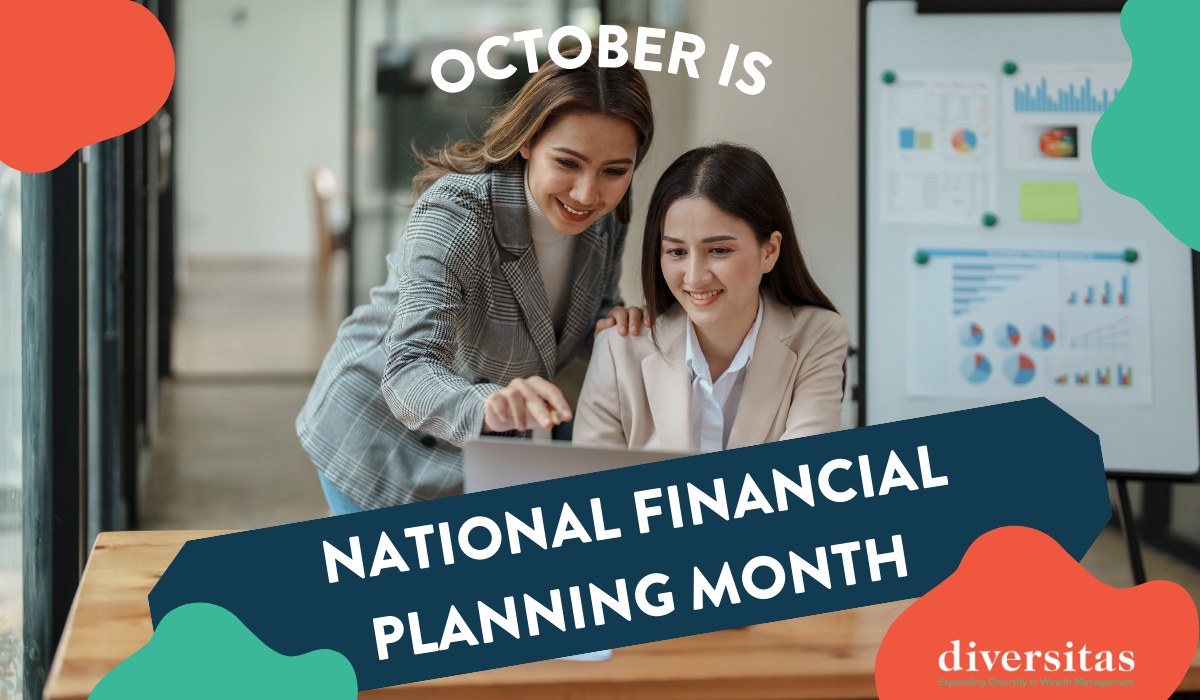Why is Financial Planning Month important?
Your finances are the key to future success. Having a financial plan enables you to prepare for worst case scenarios, like job loss or an injury that drains resources. Financial planning also helps you prepare for life’s adventures like a dream vacation or buying a house. In the wealth management industry, this month creates an opportunity to educate the public about the importance of financial planning.
How students can prepare for financial planning month
Whether you’re ready for a career in financial services or just curious, building good financial skills now will help prepare you for your future. Here are some tips and tricks to get started financially:
- Evaluate your spending. Your spending is probably the biggest portion of your financial health at this stage in the game and you want to ensure you’re spending wisely. This means re-evaluating the $100 you spent on GrubHub or DoorDash last month. Instead, could you use that money elsewhere? Do you have a healthy emergency fund established yet? Do you want to include a small percentage for charity? Evaluating your spending also allows you to check in with your values and make sure you are in sync with your goals.
- Make a budget. A budget is a roadmap that helps keep you on track with your financial goals. Once you’ve evaluated your spending, you can decide where you want your money to go. This becomes your budget. A good rule of thumb is to budget 50% of your income for needs, 30% for wants, and 20% for savings. If you can’t make those numbers work, that’s okay. Just make sure you’re setting aside some money every month into a high yield savings account.
- Track your spending for the month. Once you’ve made your budget, it’s time to put it into action. You do this by tracking your spending for the month. We recommend using an app, like Rocket Money or Mint to track your spending. Apps allow you to link your debit card to the account and automatically categorize your spending for you. You can verify that you’re staying on budget and adjust your spending as necessary as the month wears on.
How financial professionals can celebrate Financial Planning Month
Financial professionals have a responsibility to prepare their clients not only during Financial Planning Month, but all year long. It’s a great time of the year to check in with your clients to ensure they are on track to achieve their financial goals. There are also other ways for you to engage with your community and help spread financial awareness, such as:
- Educate others, beyond your clients. You can do this by donating your time and knowledge in a multitude of ways, such as volunteering to teach a class at a local community center on personal finance. Community centers are great places to have conversations about budgeting and money. Put together a short workshop and offer to host it for free for the community. Go over simple topics like tracking, spending, and creating a budget. You can also sign up with the Foundation for Financial Planning to do some pro bono work and help those who are in need.
- Connect with the next generation of advisors. This month offers an opportunity to connect with young students, interns, or early career professionals who are considering a financial planning career. Give them encouragement, make yourself available to share your experience, and go out of your way to ensure the next generation of advisors is prepared for this journey.
- Bring your work home with you. Use this month as a way to connect with family and friends about their finances. Ask your friends and family if they have financial goals they’re trying to meet and see if you can support them. Sometimes just having the conversation is enough to spur someone to action, and you want your loved ones to be taken care of during this month especially.
What career influencers – guidance counselors, teachers, parents – should know about Financial Planning Month
There are many misconceptions about the financial planning industry as someone who influences students and career changers about their future, it’s important to know that financial planning is, at its core, a helping profession. One does not need to be a math whiz to find their place in the field, as there are opportunities for everyone. In honor of Financial Planning Month, take some time to familiarize yourself with the industry and the different types of career paths. Connect with people involved in the industry to ask questions, and be sure to relay the information about this growing industry to those young adults you serve. For more information, check out our blog breaking down some of the common misconceptions.
Overall, Financial Planning Month should be a time to reflect on your finances and make positive financial change. Whether you’re a student or a financial professional, you can use this time to create a net positive in the world by budgeting, saving, and investing in your future or the future of your clients.
Take a moment to plan out how you’re going to spend Financial Planning Month. Having a plan in place will give you the incentive you need to follow through. Consider planning a treat for completing your goals, like going out to ice cream at the end of the month to celebrate your success.
For those considering joining the financial planning industry this month, check out this blog for some great reasons why and don’t forget to follow us on social media for more financial planning insights!






